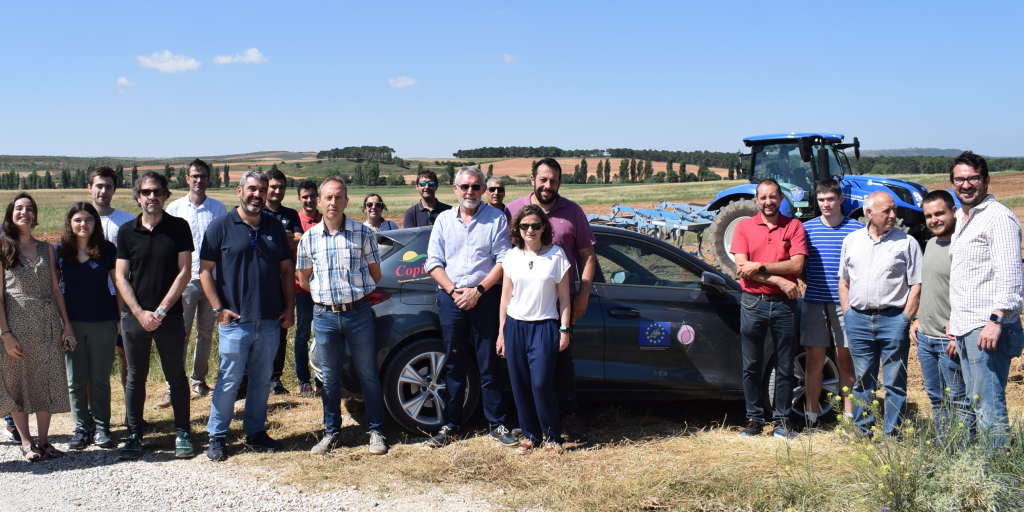Soria-based COPISO carried out a demonstration with a New Holland tractor, in the biomethane pilot plant installed on the Sauquillo de Boñices farm, thanks to the LIFE Smart Agromobility project.
COPISO and the other six partners that make up the consortium that implemented the LIFE Smart Agromobility project, developed on the Sauquillo de Boñices farm (with 3,500 pigs), demonstrated this on July 14 before the Soria media and a group of farmers, including the president of the Provincial Association of Pig Producers of Soria (APORSO), Miguel Ángel Ortiz.
New Holland gave a demonstration of agricultural work with the natural gas tractor, while the Polytechnic University of Madrid (project coordinator) and Valladolid University (Duques de Soria campus) explained and showcased the facilities and the transformation process of the gas.
The Managing Director of COPISO Pascual López highlighted the importance of the LIFE Smart Agromobility project, which is aimed at studying the profitability of biomethane production, in the pilot plant installed on the farm, and the recovery of a by-product such as the slurry.
López recalled that the Soria cooperative has been focusing its efforts and investments in research, development and innovation (R+D+i) in recent years on the recovery of by-products, such as manure, with the production of quality organic fertilizers and, now, also, of biomethane for vehicles. He also underlined the importance that the cooperative gives to sustainability and the improvement and efficiency of agricultural and livestock production processes, framed in the commitment to the circular economy.
For his part, Ortiz defended pig activity in Castilla y León and in the province of Soria, where it can still have more development and is key to the future of rural areas and towns. He also highlighted the sector’s commitment to sustainability, as demonstrated by projects such as LIFE Smart Agromobility, which helps reduce emissions and produce non-fossil green energy.
Finally, the Marketing Director of New Holland in Spain José Llopis confirmed the growing interest in the production of biomethane as a fuel for natural gas vehicles and tractors, because they achieve a negative carbon footprint and favor “a more sustainable and ecological agriculture.”
Source: COPISO







